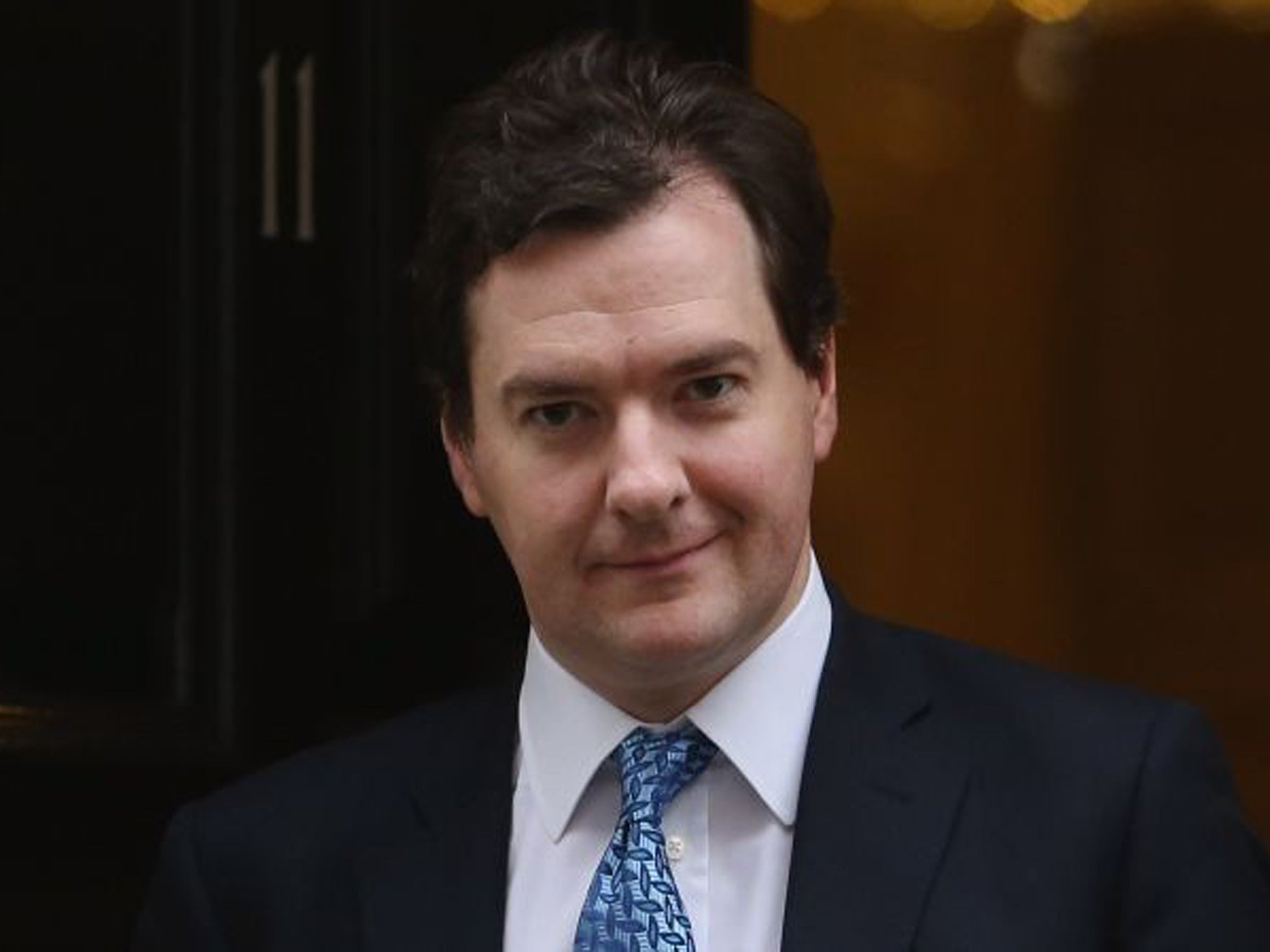George Osborne ruffles Brussels with first explicit threat to quit EU
Chancellor speaks ahead of expected referendum promise by David Cameron

Your support helps us to tell the story
From reproductive rights to climate change to Big Tech, The Independent is on the ground when the story is developing. Whether it's investigating the financials of Elon Musk's pro-Trump PAC or producing our latest documentary, 'The A Word', which shines a light on the American women fighting for reproductive rights, we know how important it is to parse out the facts from the messaging.
At such a critical moment in US history, we need reporters on the ground. Your donation allows us to keep sending journalists to speak to both sides of the story.
The Independent is trusted by Americans across the entire political spectrum. And unlike many other quality news outlets, we choose not to lock Americans out of our reporting and analysis with paywalls. We believe quality journalism should be available to everyone, paid for by those who can afford it.
Your support makes all the difference.George Osborne has delivered a blunt ultimatum to the European Union that it “must change” to avoid Britain pulling out of it in the near future.
In a significant toughening of the Tory leadership’s language on the issue, the Chancellor stressed he wanted the UK to stay in the bloc, but added that the EU needed to undergo sweeping reform to prevent a British exit.
He was speaking as David Cameron prepares for a major speech which is expected to include the promise of a referendum on the EU in the next Conservative manifesto.
In an interview with the German newspaper Die Bild, Mr Osborne became the first senior Government member to raise publicly the prospect of British withdrawal.
He said: “I very much hope Britain remains a member of the EU. But in order that we can remain in the European Union, the EU must change.”
The explicit threat to quit – previously only echoed privately by other ministers – will be seen as an attempt to exert pressure on other member states in future talks over a revised EU treaty. It will also be welcomed by restive Tory backbenchers pressing the Government for a tougher approach to the EU, but dismay Liberal Democrat members of the Coalition.
Vince Cable, the Business Secretary, took a pot-shot at Tory ministers today when he warned that renewed speculation over Britain’s place in Europe was “deeply unhelpful in my job” and “deeply uncomfortable”.
The diplomatic tension is rising ahead of Mr Cameron’s speech – expected to be delivered in the Netherlands on January 22 – in which he will declare his determination to renegotiate EU treaties to loosen British ties with Brussels.
Herman Van Rompuy, the President of European Council, has made clear that any attempt by the Prime Minister to repatriate powers to London is doomed.
A similar warning was delivered by a close ally of German Chancellor Angela Merkel this week, while a senior American diplomat, Philip Gordon, cautioned against any move that would marginalise Britain in Europe. Mr Cable today described Mr Gordon’s “warning shot across the bows” as “quite helpful as well as very timely”.
In his interview, Mr Osborne refused to be drawn on whether the Prime Minister was preparing to announce plans for a referendum.
But he added: “David Cameron has said recently a new consensus is necessary for our relations with Europe.”
He said the British were “very disappointed” with the EU and were questioning whether it could create jobs and tackle economic problems.
His remarks were published as Downing Street sought to play down suggestions of rift between Britain and the United States over the direction of the Prime Minister’s European policy.
Mr Cameron’s official spokesman insisted he had received strong support from President Barack Obama when the two men discussed the subject last month.
“He was supportive of the Prime Minister’s view that it’s in Britain's national interest to be in EU but to change the relationship and seek fresh consent,” the spokesman said.
But he was unable to explain the apparently different message relayed this week by Mr Gordon from the support offered by President Obama.
The veteran Tory Eurosceptic, Bill Cash, criticised foreign interference on the subject and said it was up to Britain to decide its place in Europe.
“Our position in relation to our relationship with the European Union has got to be straightened out,” he said.
Douglas Alexander, the shadow Foreign Secretary, said: “George Osborne may have been talking to a German newspaper but his real audience were Conservative backbenchers.
“No wonder only this week Britain’s allies and British business leaders warned the Government about the risk of sleepwalking to the exit.”
Join our commenting forum
Join thought-provoking conversations, follow other Independent readers and see their replies
Comments